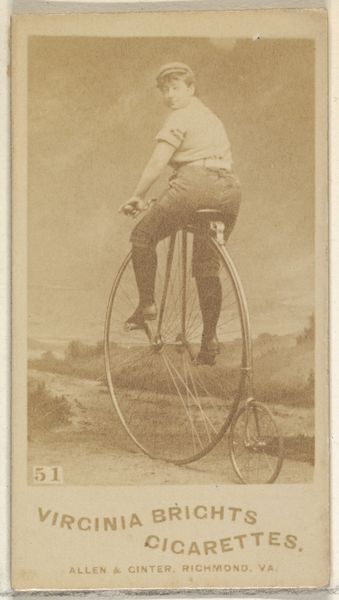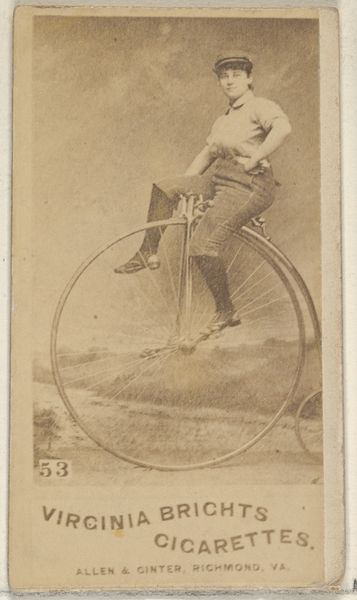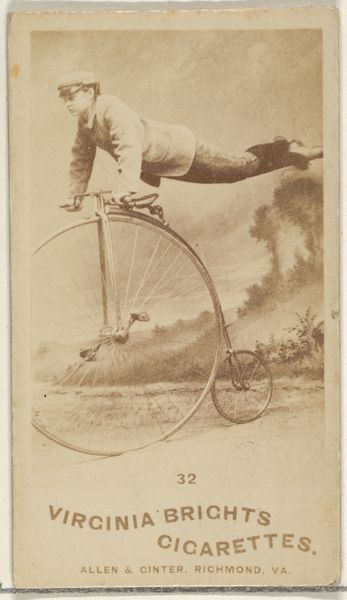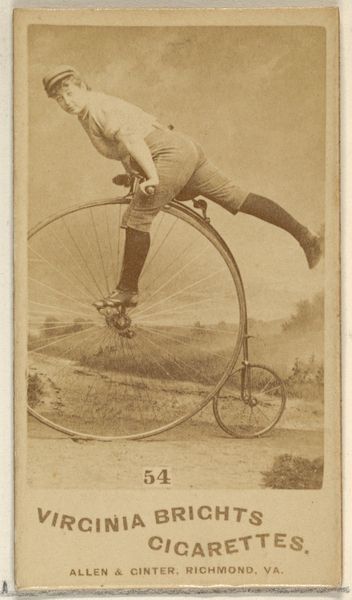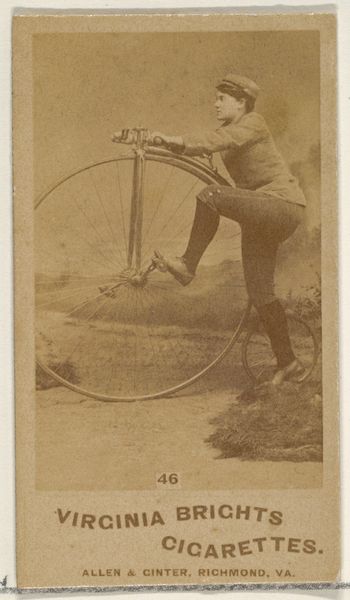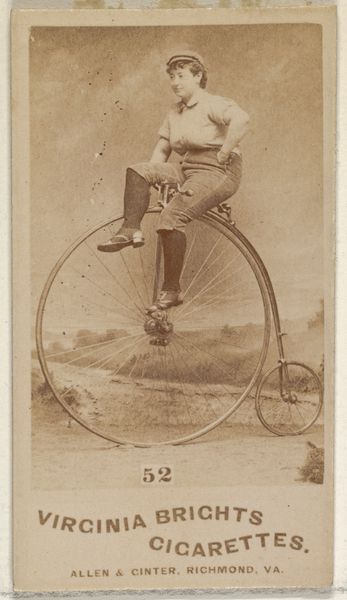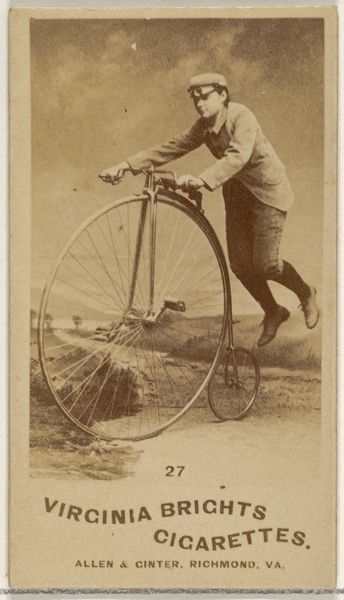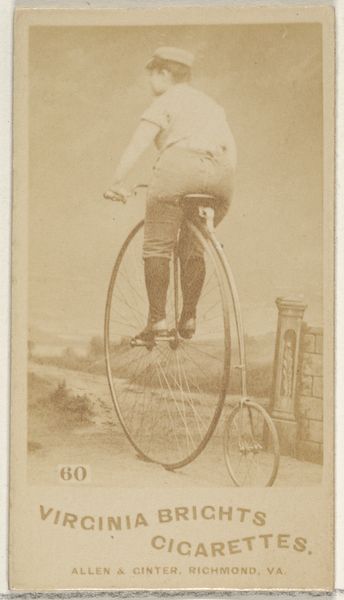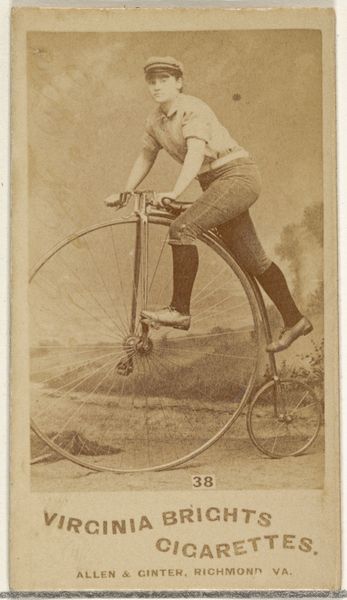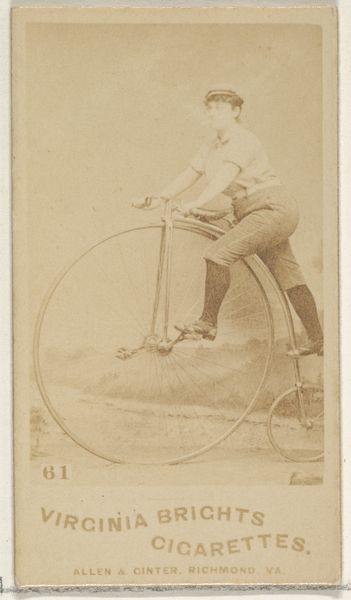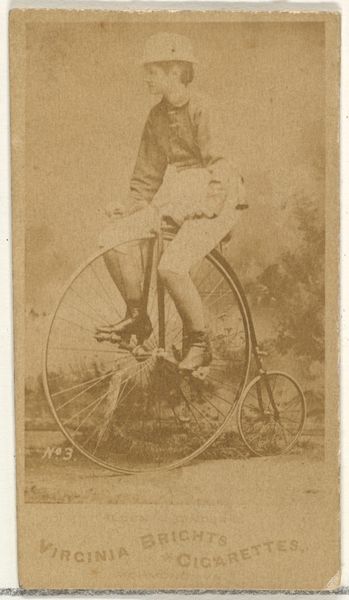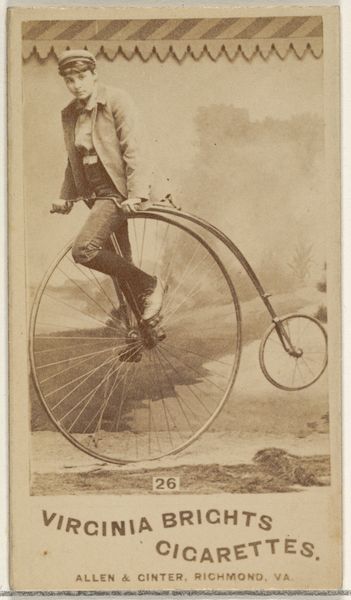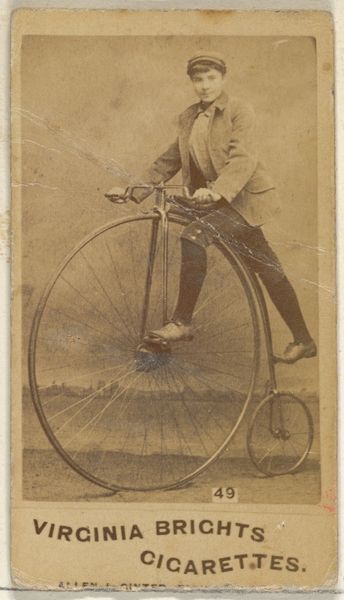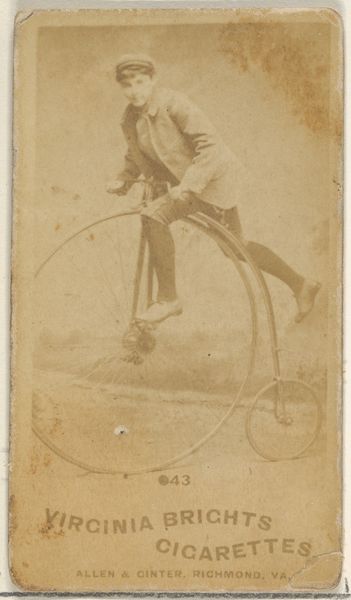
Card 64, from the Girl Cyclists series (N49) for Virginia Brights Cigarettes 1887
0:00
0:00
Dimensions: Sheet: 2 3/4 x 1 3/8 in. (7 x 3.5 cm)
Copyright: Public Domain
Curator: This small photograph, a card really, dates back to 1887. It's titled "Card 64, from the Girl Cyclists series (N49) for Virginia Brights Cigarettes," produced by Allen & Ginter. What do you make of this, seeing it for the first time? Editor: Immediately, I’m struck by the confidence radiating from her posture and expression. It's unusual, and almost confrontational, given the bicycle's symbolic weight with notions of freedom and early feminism. Curator: Exactly! These cards were originally inserts in cigarette packs, and Allen & Ginter often depicted idealized types like actresses, baseball players, and in this case, "new women". The bicycle was a powerful symbol of modernity and female emancipation at the time. These cards had an enormous impact, both good and bad, promoting tobacco sales with desirable imagery while stoking real conversation about gender and movement. Editor: And the visual language—it seems to play with the trope of goddesses and heroines carried on vehicles or creatures of great size or presence. There's a subtle mythologizing happening here, as the cyclist ascends what, at the time, must have seemed like a radical machine. Curator: Good observation. Notice also the intentionally classicized portrait style, despite the modern subject. The landscape setting, reduced to just a background element, focuses our attention entirely on this woman, reinforcing her status. This image had to grab a consumer’s attention, which at this moment required appealing to what cultural elites admired, and even hoped for, at this critical junction for the role of women in the country. Editor: So it's an aspirational image meant to be both enticing and subtly reassuring? The confidence it portrays would almost certainly have challenged convention. Curator: Precisely. These cards, and others like them, served as key agents in that era’s ongoing renegotiations around female empowerment. While certainly reinforcing some conventions, such as "appropriate" presentation of femininity, these "Girl Cyclists" nonetheless helped circulate, and normalize, images of physically active and empowered women in public spaces. Editor: Thinking about this piece now, beyond the surface appeal, its place as part of an advertisement campaign and as an entry into larger social narratives, changes my whole interpretation. Curator: It's amazing how a seemingly simple piece like this can hold so much meaning, when considering the right historical lens.
Comments
No comments
Be the first to comment and join the conversation on the ultimate creative platform.
